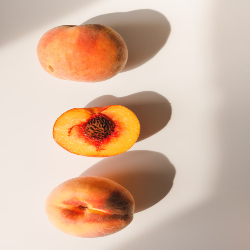Cherries Nutrition facts
Cherries

Wonderfully delicious, cherry fruit is packed full of health-benefiting nutrients and unique antioxidants. Cherries are native to Eastern Europe and Asia Minor regions.
Botanically, the fruit is a “drupe” (stone fruit), belonging to the large Rosaceae family of small tree fruits in the genus, Prunus. Some of the common “drupe” family fruits are plums, peaches, apricots, etc. Although several species of cherries exist, two popular cultivars are wild or sweet cherry and sour or tart cherry. While sweet cherries belong to the species of Prunus avium, tart variety belongs to that of Prunus cerasus.
Cherries are drupe fruits with a central “stony-hard” seed surrounded by fleshy edible pulp. They come in small sizes, measuring about 2 cm in diameter. Externally they covered by bright 'shiny' red or purple, thin peel.
The West Indian cherry, known as acerola (Malpighia emarginata), is native to West Indian islands and grown in Mexico, and Texas regions in North America. Acerola belongs to the tropical fruit-bearing shrubs in the family Malpighiaceae and contains 2-3 tiny seeds. Acerola composes exceptionally high levels of vitamin-C and vitamin-A than North American and European cherries.
Similar Food
-
 Acai berry 63 Cal
Acai berry 63 Cal -
 Acerola cherry 32 Cal
Acerola cherry 32 Cal -
 Apple 52 Cal
Apple 52 Cal -
 Apricot 48 Cal
Apricot 48 Cal -
 Avocado 160 Cal
Avocado 160 Cal
Source of Calorie
-
Carbs16.10 g 91%
-
Protein1.06 g 6%
-
Fat0.20 g 3%
How long to burn off 63 Calories?
*Approximate base minutes for a 25-year-old, 65 kg adult at moderate intensity.
| Nutrition Principle | Nutrition Value | Percentage of RDA |
|---|---|---|
| Principle | ||
| Cherry type | Sweet | Tart   |
| Energy | 63 cal | 50 cal |
| Carbohydrates | 16.1 g | 12.18 g |
| Protein | 1.06 g | 1.00 g |
| Total Fat | 0.20 g | 0.30 g |
| Cholesterol | 0 mg | 0 mg |
| Dietary Fiber | 2.1 g | 1.6 g |
| Vitamins | ||
| Folates | 4 µg | 8 µg |
| Niacin | 0.154 mg | 0.400 mg |
| Pyridoxine | 0.049 mg | 0.044 mg |
| Riboflavin | 0.033 mg | 0.040 mg |
| Thiamin | 0.027 mg | 0.030 mg |
| Vitamin A | 64 IU | 1283 IU |
| Vitamin C | 7 mg | 10 mg |
| Electrolytes | ||
| Sodium | 0 mg | 3 mg |
| Potassium | 222 mg | 179 mg |
| Minerals | ||
| Calcium | 13 mg | 16 mg |
| Copper | 0.060 mg | 0.104 mg |
| Iron | 0.36 mg | 0.32 mg |
| Magnesium | 11 mg | 9 mg |
| Manganese | 0.070 mg | 0.112mg |
| Phosphorus | 21 mg | 15 mg |
| Zinc | 0.07 mg | 0.10 mg |
| Phyto-nutrients | ||
| Carotene-ß | 38 µg | 770 µg |
| Carotene-α | 0 µg | 0 µg |
| Lutein-Zeaxanthin | 85 µg | 85 µg |